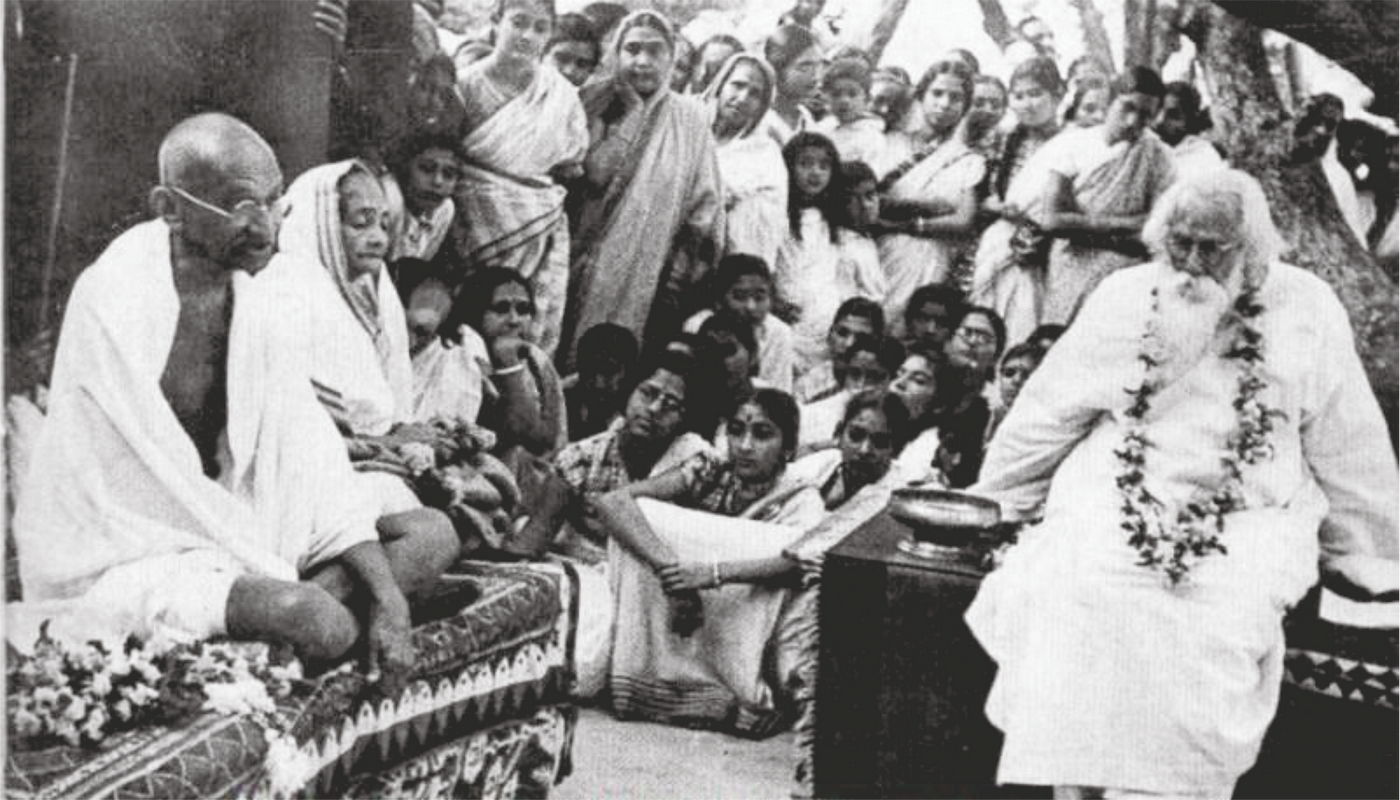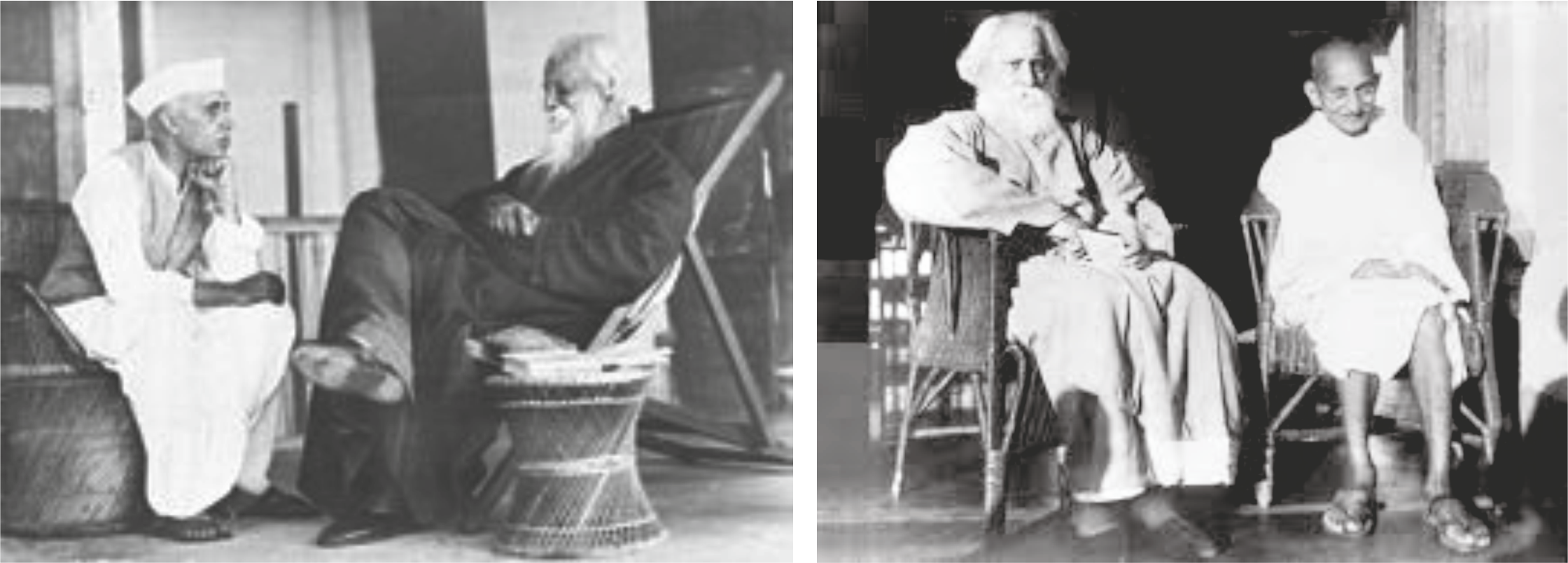Rabindranath Tagore was an icon of Indian culture. He was a poet, philosopher, musician, writer, and educationist. Rabindranath Tagore became the first Asian to become a Nobel laureate when he won the Nobel Prize for his collection of poems, Gitanjali, in 1913. He was popularly called Gurudev and his songs were popularly known as Rabindra-sangeet. Two songs from his Rabindra-sangeet canon are now the national anthems of India and Bangladesh: the Jana Gana Mana and the Amar Shonar Bangla. Rabindranath Tagore was born on May 7, 1861, in a wealthy Brahmin family in Calcutta.

He met William Rothenstein, a noted British painter, in London. Rosenstein was impressed by the poems, made copies, and gave them to Yeats and other English poets. Yeats was enthralled. He later wrote the introduction to Gitanjali when it was published in September 1912 in a limited edition by the India Society in London. Rabindranath Tagore was awarded Nobel Prize for Literature in 1913 for Gitanjali. In 1915 he was knighted by the British King George V. In 1919, following the Jallianwala Bagh massacre, Tagore renounced his knighthood. He was a supporter of Gandhi Ji but he stayed out of politics. He was opposed to nationalism and militarism as a matter of principle, and instead promoted spiritual value and the creation of a new world culture founded in multi-culturalism, diversity, and tolerance. Unable to gain ideological support for his views, here tired into relative solitude. Between the years 1916 and 1934, he traveled widely.
In 1921, Rabindranath Tagore established Viswabharati University. He gave all his money from Nobel Prize and royalty money from his books to this University. Tagore was not only a creative genius, he was quite knowledgeable of Western culture, especially Western poetry and science too. Tagore had a good grasp of modern-post-Newtonian-physics and was well able to hold his own in a debate with Einstein in 1930 on the newly emerging principles of quantum mechanics and chaos.
His meetings and tape-recorded conversations with his contemporaries such Albert Einstein and H. G. Wells, epitomize his brilliance. In 1940 Oxford University arranged a special ceremony in Santiniketan and awarded Rabindranath Tagore with a Doctorate of Literature. Gurudev Rabindranath Tagore passed away on August 7, 1941, in his ancestral home in Calcutta.
Rabindranath Tagore wrote both the words and the music for what would (some16 years after his death) become the National Anthem of India (Jana Gana Mana).


Patriotism: Rabindranath was not only a great poet. He was also a great lover of his country. In 1919 occurred the shameful Jalinwallabag massacre in Amritsar, where innocent men, women, and children were killed by the British. Rabindranath immediately gave up his Knighthood. He also props he sied that such brutality was sure to end the British rule in India very soon.
Viswa-Bharati and Santiniketan: One of the greatest achievements of Tagore was the creation of Viswa-Bharati at Santi Niketan near Bolpur in West Bengal. His aim was to combine the cultural ideals of the East and the West. He was a seminent in painting, music, acting, and dancing, as in poetry. He took part in his plays and recited his poems with sweetness and charm. Therefore, he introduced the cultivation of different arts in Viswa-Bharati. It has now become a famous Indian University.
His message: The poet toured almost all around the world. Everywhere he received the love and respect of all, the rich and the poor, the high and the low. Wherever he went, people came to him to hear his message of love and hope. He was also a religious man. He looked like a saint and lived like a saint. Gandhiji regarded him as the greatest master of culture and sanctity, peace and love; so he called the poet his Gurudeva.
His death: Full of glory and honors the poet passed away on August 7, 1941, at his ancestral home in Calcutta (now Kolkata). His death was mourned all over the world. His centenary has been celebrated throughout India and other Countries in 1961. Many academies and libraries have been established in the name of the immortal Rabindranath to celebrate his birth centenary.

